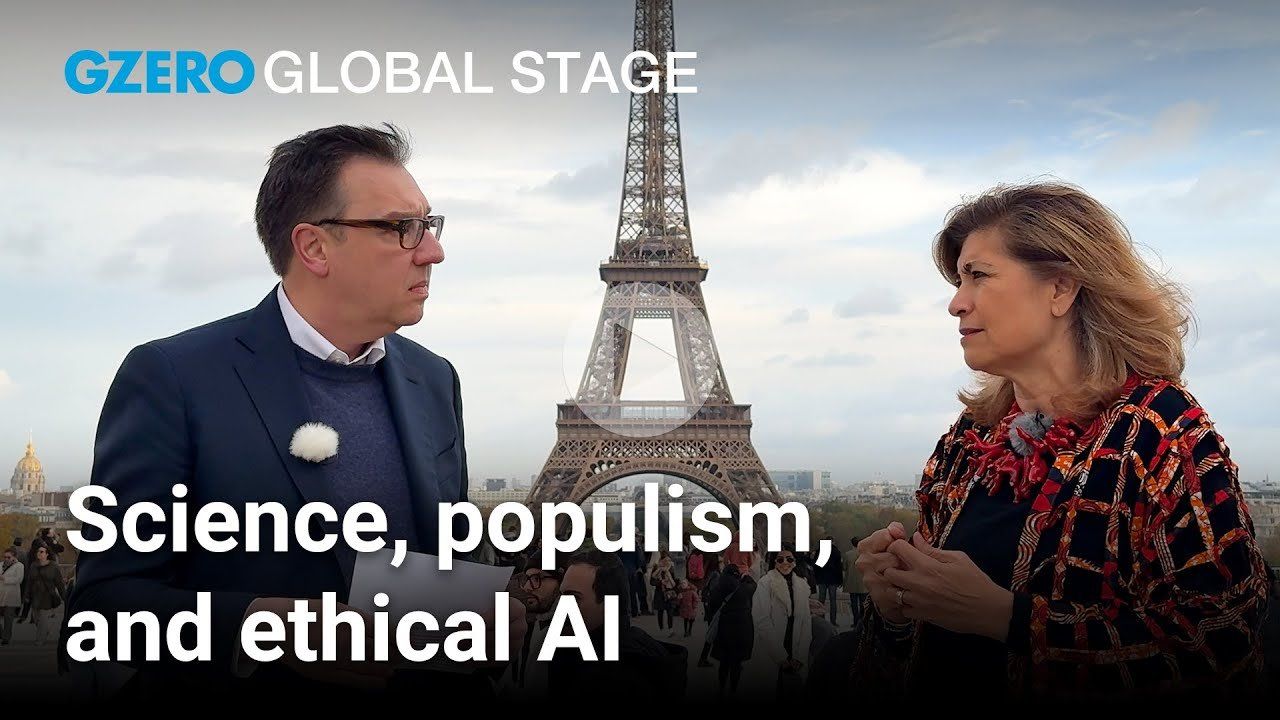Paris Peace Forum
Protecting science from rising populism is critical, says UNESCO's Gabriela Ramos

- YouTube

In a GZERO Global Stage discussion at the 7th annual Paris Peace Forum, Gabriela Ramos, Assistant Director-General for Social and Human Sciences at UNESCO, highlighted the crucial role of science in fostering peace and expressed concerns over rising populism undermining scientific efforts.
"We need good science to navigate these waters... If you don't invest in scientific endeavors, it's going to be problematic," she said.
Ramos also addressed the challenges of artificial intelligence potentially widening global inequalities due to its concentrated development in a few countries. Emphasizing the need for ethical AI, she stated, "We need to invest to change it because AI is amazing. It's a promising tool, so we really need to get it right."
UNESCO is proactively addressing these challenges by framing an international standard for ethical AI, developed in collaboration with 194 countries. "We move away from a technological discussion to a societal one to say, is it enhancing our human rights? Is it not discriminating? Is it helping us with the environmental transition? And if the answer is no, we need to invest to change it because AI is amazing. It's a promising tool, so we really need to get it right," Ramos asserted.
This conversation was presented by GZERO in partnership with Microsoft at the 7th annual Paris Peace Forum. The Global Stage series convenes global leaders for critical debates on the geopolitical and technological trends shaping our world.
In this Quick Take, Ian Bremmer breaks down the growing tensions between the US and Iran, calling it "the next area of potential large-scale conflict where President Trump is interested in changing the facts on the ground."
392,000: The estimated number of people displaced across Mozambique by recent rain-induced floods. Severe flooding in the southern African nation, as well as in South Africa and Zimbabwe, has killed over 100 people.